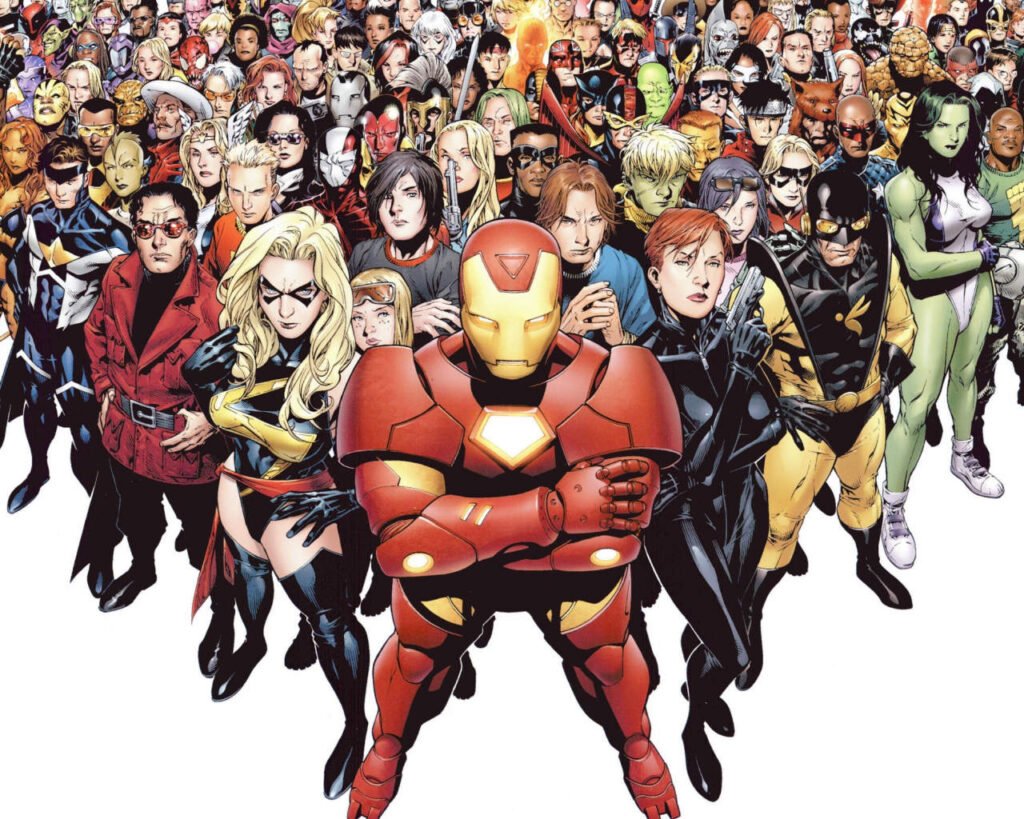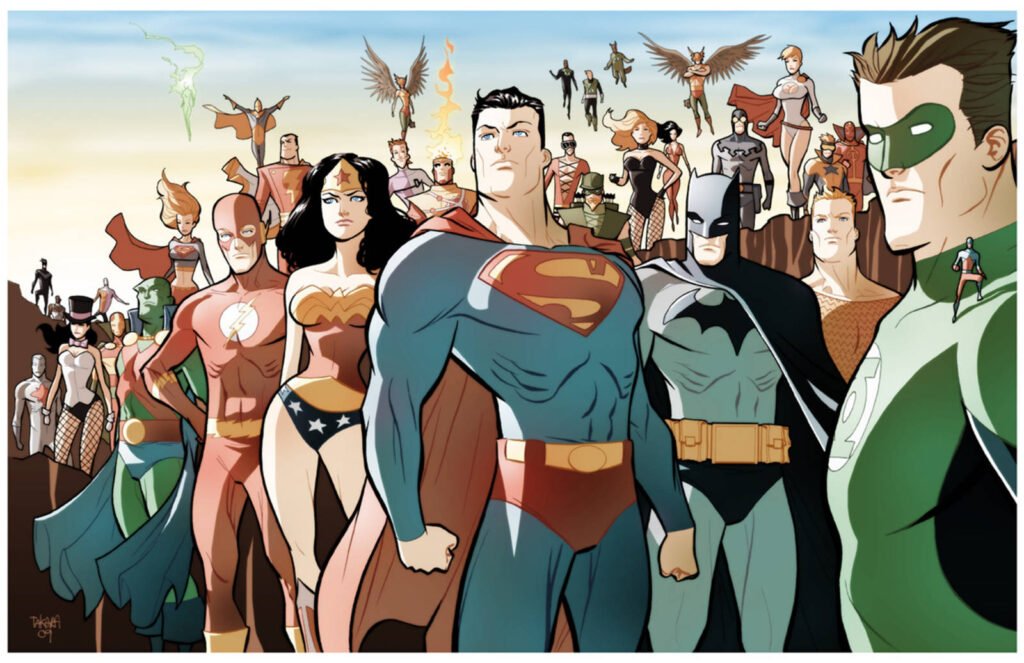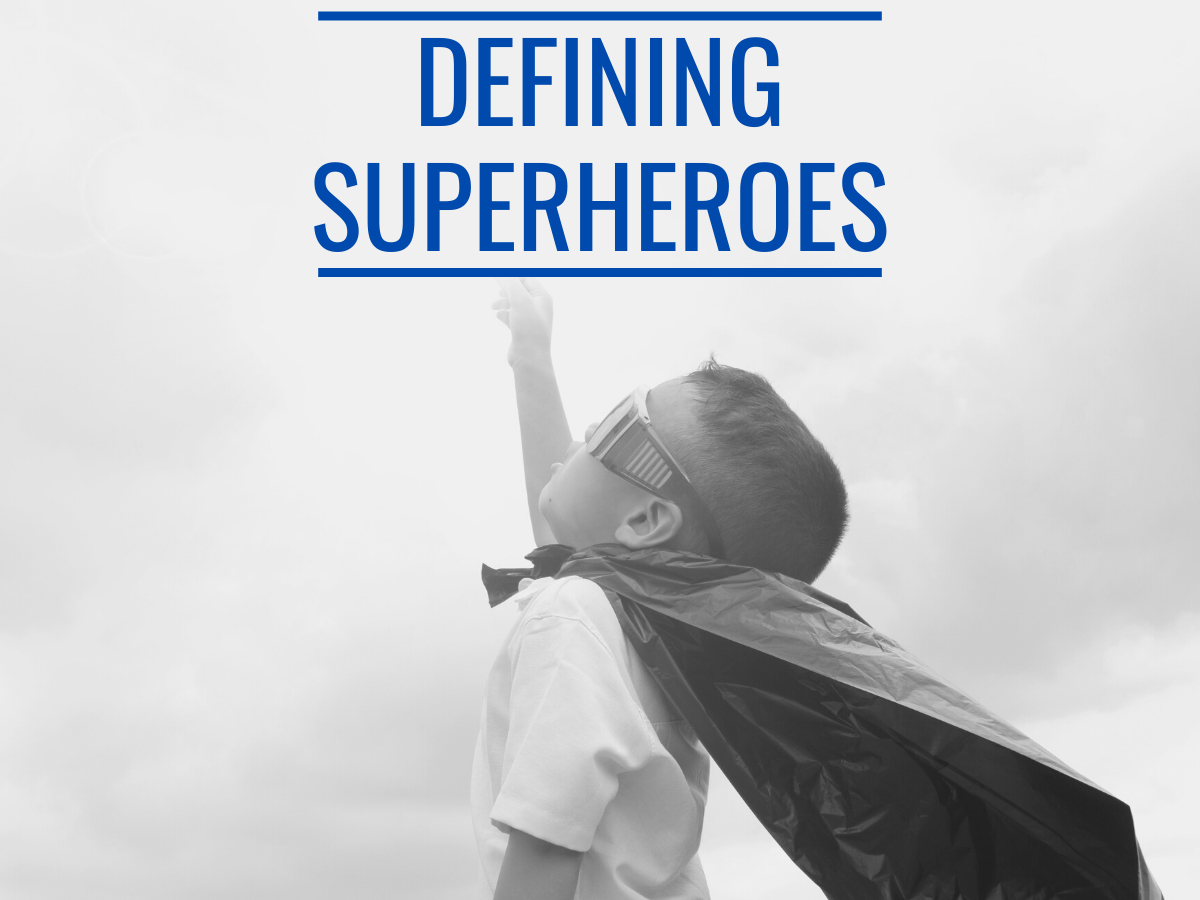When I reviewed The Old Guard film, I read some reviews to see what other people thought of the movie. What surprised me was seeing more than once the phrase ‘superhero movie’ to describe The Old Guard.
WTF? How is The Old Guard a superhero movie? Did people come to that conclusion just because it is a film adapted from a comic book that involves superhuman powers? Because they’re wrong – The Old Guard is not a superhero movie; it’s a thriller with a fantastical element. Do people call Highlander a superhero movie?
It got me thinking about the definition of the word ‘superhero’ and what it means to me and the rest of the world. Having read a lot of superhero comic books (and watched the associated movies), I have some thoughts on it that I wanted to capture as a rebuttal of the people who think that any movie based on a comic book must be a superhero film.
First off, some definitions from reference sources:
Merriam-Webster Dictionary: ‘a fictional hero having extraordinary or superhuman powers’
Oxford English Dictionary: ‘A benevolent fictional character with superhuman powers, such as Superman’
Wikipedia: ‘A superhero or superheroine is a stock character that possess abilities beyond those of ordinary people, who typically uses their powers to help the world become a better place, or is dedicated to protecting the public, and stopping evil.’
[Note: when referring to ‘superhero’ in this blog post, I am not assigning gender by using the male ‘hero’ – for me, ‘superhero’ is a non-gender-specific term, and I’ll be using it as such throughout.]
The word is a simple compound term containing the adjective ‘super’ of ‘superhuman’ and the noun ‘hero’ (‘A person who is admired for their courage, outstanding achievements, or noble qualities’). I don’t think this completely covers what a superhero is, especially when you take into consideration the fact that Marvel and DC Comics have a joint trademark on the term ‘superhero’, which they got in the late 1970s and renewed in 2009.
In a good primer by long-time comic book fan, writer and lawyer by day, Brian Cronin, he discusses what this means. It’s an interesting read and I was particularly intrigued by the quote:
‘Besides filing for a trademark, what Marvel and DC had to demonstrate was that, when consumers thought of the word “superhero”, that they thought of DC or Marvel.’
This is an important fact to consider when talking about superheroes.

An aside: ‘superhero’ versus the phrase ‘super hero’ – in the Marvel and DC chronicles and Marvel: Rise of the Super Heroes books I reviewed recently, it was always two words (even capitalised as Super Heroes for no particularly good reason), as it is for Lego Marvel Super Heroes, which I also reviewed recently. This post at World Comic Book Review seems to have a copy of the section of the trademark filing, and it appears to be two words, ‘super hero’, hence the usage in officially licensed merchandise. I’m not sure on the legal standing of ‘superhero’ but it’s one word as far as I’m concerned.
Returning to defining superheroes. Heroes with superhuman powers have been present in stories since stories were recorded – the various myths telling the adventures of pantheons of gods, creation myths, the stories of Greek legends. It’s an ancient part of human storytelling, but nobody was calling them superheroes and still don’t. People might talk about how superheroes are the modern iteration of mythological storytelling, but that doesn’t mean that anyone will be calling Gilgamesh or Herakles superheroes anytime soon.
Comic books invented superheroes, with the publication of Action Comics #1 and the introduction of Superman, and the associated connections are what define superheroes: powers above normal humans, a costume, fighting against criminals/wrongdoers. Ask anyone today what a superhero is and they will talk about the characters in the MCU films (and perhaps the DCEU films as well), emblazoned on merchandise and prevalent everywhere. I would posit that today people associate superheroes with Marvel and DC (even if many of them cannot distinguish between the different universes), just as the trademark paperwork states. My attempt at a definition is a little broader in scope.
My working definition of ‘superhero’:
A superhero is a comic book character with superhuman powers who wears a costume to fight against forces of evil, within the confines of a shared universe where other such characters exist
Comic book character
The ‘comic book character’ has some leeway – superheroes created for film or television that don’t have comic book antecedents are still superheroes because they are clearly playing off the rules and innovations laid down in comic books for decades. For example, Unbreakable is clearly a superhero film despite not being from a comic book because it adheres to the parameters of comic book characters (a hero with superhuman powers who has a costume and fights evil; it even goes further by introducing a supervillain). The Incredibles are clearly superheroes, despite being created specifically for the screen – powers, costumes, secret identities, fighting against bad guys, in a world where other such superpowered costumed characters exist.
Superhuman powers
The phrase ‘superhuman powers’ is basic (flight, strength, invulnerability, psychic powers, etc.) but has some leeway as well – do Batman and Iron Man have superhuman powers? Both are human with no metagene but clearly what they can do is beyond normal human ability. Batman has a Sherlock Holmes level of deductive reasoning and intellect, as well as having an above normal level of physical prowess in his ability to fight; the combination would suggest ‘superhuman powers’.
Iron Man is a genius-level inventor/engineer, who also has incredibly shrewd business brain plus a geek level of pop-culture references that wouldn’t be associated with someone so successful and dedicated to making things and making money (as well as trying to have sex with as many people as possible); plus, the character self-described as a ‘Genius. Billionaire. Playboy. Philanthropist.’ must have superhuman powers because, if compared with someone like Jeff Bezos, being a billionaire and philanthropist is not normal human behaviour.
Even the ability to fight (and keep fighting) the way non-powered super heroes do in comic books and films can be classified as ‘superhuman powers’ – Hawkeye and Black Widow are not superhuman, unless their skill with weapons is classified as such, but they’re clearly not normal human.

Costumes
This is another important aspect – superhero characters have a costume/uniform/identifying clothing, even if it’s not spandex (Jack Knight as Starman didn’t wear a superhero suit, but the goggles/jacket combo is clearly a costume; John Constantine’s trenchcoat is a costume, although he isn’t a superhero; Iron Man’s suit is a costume). Superheroes can fight without a costume, but there is an aspect of branding because it’s part of the tradition. This can be in the visualisation of the specific superpower – I enjoyed the adventures of Psi-Force from the ill-fated New Universe, who did not have costumes, but there superpowers were clearly distinguished in the visual representation of them that was clearly indicative of a costume.
Fight against forces of evil
A superhero character does the right thing and tries to stop someone who does the wrong thing. This started out as gangsters and criminals but has expanded to include anything that deliberately tries to inflict harm for selfish reasons, even gods. It’s the ‘hero’ part of the phrase – doing the tough job of standing up to bad guys; you can have superpowers but there has to be a reason before the stories are about superheroes.
Shared superhero universe
This part of the definition is a little nebulous but it’s about the concept of willing suspension of disbelief that the existence of super-powered characters fighting evil in a world where other examples of superpowers exist and follow in the same tradition. In Gladiator by Philip Wylie, the novel that provided some inspiration for Superman, the lead character is the only superpowered character in the story, so is he a superhero character or simply a hero with superpowers? Going back to Unbreakable, although the shared universe didn’t arrive until much later with Split, the shared universe concept is inherent in the idea of Mr Glass as a proto-supervillain in that world.
I know I’ve barely scratched the surface of a unifying theory of superheroes – people have written entire books about it, so a 1500-word blog post about what a comic-book fan thinks is clearly insufficient. However, I’ve got the gist of it to my satisfaction, particularly the aspect of comic books being inherent to the nature of the superhero. Despite the fact that the comic book industry is still small whereas cinema and television are huge and global, the adaptations and original films/shows are all founded in the primeval soup of the concepts introduced and reiterated in comic books.
Finally, I should point out that the definition of a superhero is fairly irrelevant to my enjoyment of their adventures. Although I started out as a Marvel zombie, my tastes and reading has expanded beyond that. Entertaining tales of paranormal characters are my primary focus and comic books, and superhero comic books, were the best, most accessible, regularly scheduled and varied source for that craving. I still enjoy superhero comic books/films/television shows – I just don’t want people incorrectly using the term as a blanket description for anything that’s a bit unusual.




